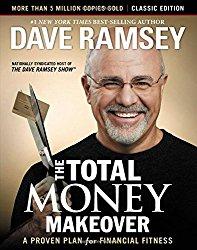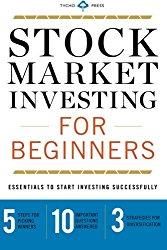Many studies, such as that by the National Financial Educators Conference, have shown that many young adults have a poor financial literacy. As a result, many adults have no savings; many college students are moving back home after graduation; and student loan debt when leaving college is averaging over $25,000 per year. To help address this need, The Small Investor is starting a series of posts on difference aspects of finance to help provide the basic financial background needed to be successful financially in life. These will all be in the category of “Financial Basics.” The first post will start with the very basics:
What is money?
Most people do not really understand what money is. They know they like money. They know that they like having money. But they do not understand the very fundamental concept of what money is. As a result, they believe myths like money is finite and that you need to take from one person for another to grow wealthier. Truly learn what money is, and you’ll understand that everyone can have money. One person does not need to become poor for another to become wealthy.
Perhaps you’ve heard the expression “Time is money”, but in actuality,
Money is time.
A twenty dollar bill or a jar of pennies is an IOU for something you want. If you want something like an ice cream cone, your home cleaned, or a new car, you give some of those IOUs to someone else in exchange for the thing you want. In exchange for those IOUs, you get some of someone else’s time – time to make the ice cream and the cone, time to clean your home, or time to dig up the materials and make a new car.


Learn to master your money with these great books from Amazon.
To gain those IOUs, you provide your time to other people, doing things that they want. They give you an IOU for your time, which they received in exchange for providing some of their time to someone else. You don’t usually get IOUs from other people for doing something just you want to do, even though many artists feel that they should paint, or write, or sing what they want and others should pay them to do so. Likewise, I can write about things I want to write about, but people won’t read the blog and hopefully buy a book or click on an ad so that I can receive some money for my time unless I write about things they want to read. By giving you money, people are giving away some of the time that they spent doing things for other people, and they want to get something they want in return.
Likewise, you cannot expect to get paid more than what you provide is worth to someone else. To do so would be asking someone to give you more of their time than you are providing to them in value. Would you spend the time and the energy to make a double-decker cheeseburger with special sauce, fries, and a coke for someone else in exchange for a cup of tepid tap water? Would you agree to spend three hours cleaning someone else’s whole home in exchange for them spending a half hour cleaning one room in yours? This is exactly what you’re doing if you expect to get paid more than the market is willing to pay for your job by legislative decree. If you try to force others to give you more of their time than what you’re providing is worth, they will stop agreeing to trade with you. You will then no longer have a job.
Understand also that the value of something is not based on the actual amount of time the person giving it to you spent making it;
To you, things are worth the time you would be willing to exchange for them.
Someone might spend a week carving a bowl from a log by hand, but that does not mean someone else will be willing to pay a week’s salary for it. There may be someone willing to pay that much, but someone else may only be willing to pay a hour’s salary, or maybe nothing at all. Someone may also be able to create things very quickly that other people would be willing to spend a lot of time to acquire because they have special abilities, have created tools to make them more efficient, or because they have even created a factory or a company to make those things quickly. This leads to the final truth about money:
People who are more productive through things they learn and tools they make can earn more of other people’s time than they provide in exchange.
People who put in the effort and time becoming doctors, lawyers, or engineers are able to provide things that people are willing to exchange a lot of their time for because the things they provide are very valuable to the other people. They can therefore earn a lot more money per unit of time than many other people who provide less-valuable things. A person who has a tractor and can cut a lawn in five minutes, and therefore can cut five lawns in the time needed for someone who has a push mower to cut one lawn, can make five times as much as the person with the push mower.

Sphero Star Wars BB-8 App Controlled Robot $74.43
To review:
1. To make more money, become more productive through skills and tools.
2. You cannot expect to get paid more than the value of what you produce.
3. You make money by spending your time doing things that other people want, not what you want. People who do the things that many other people desire get the most money.
4. You cannot expect people to continue spending their time doing things that you want unless you provide them with IOUs to regain that time getting something that they wish to acquire.
If you feel that this article is valuable to you and worth some of your time, consider purchasing a book (which hopefully will also be valuable) or clicking on an ad and buying something you want from Amazon. Doing so will provide me incentive to continue spending my time writing similar articles. Then again, if this article is not valuable to you, you would probably have stopped reading by this time anyway, and I should therefore not expect to receive any of your time in exchange.
Follow me on Twitter to get news about new articles and find out what I’m investing in. @SmallIvy_SI
Disclaimer: This blog is not meant to give financial planning or tax advice. It gives general information on investment strategy, picking stocks, and generally managing money to build wealth. It is not a solicitation to buy or sell stocks or any security. Financial planning advice should be sought from a certified financial planner, which the author is not. Tax advice should be sought from a CPA. All investments involve risk and the reader as urged to consider risks carefully and seek the advice of experts if needed before investing.

